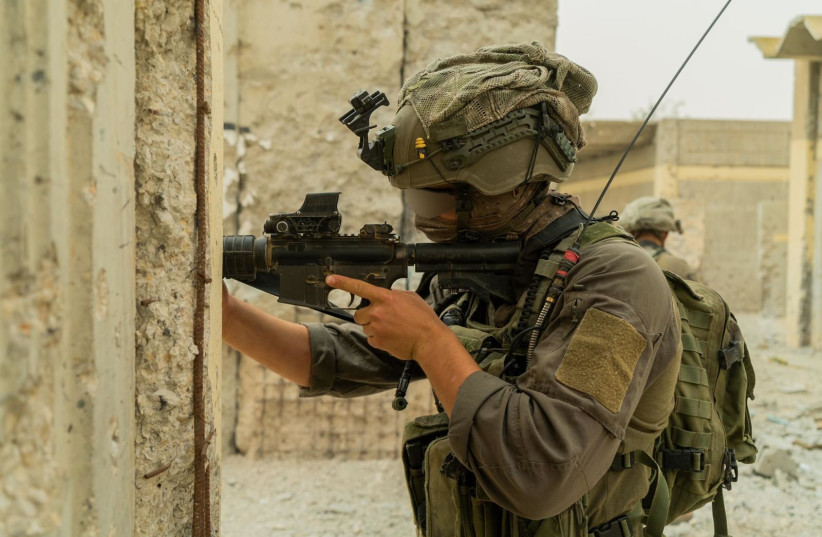The IDF recently completed an important investigation into the friendly-fire incident that killed two officers from the Egoz commando unit.
However, the findings have concluded that the commander of the battalion will not be removed from his position. Instead, he will receive a slap on the wrist, while a number of junior officers will be dismissed.
The deputy battalion commander, for example, has been removed and barred from a command role. And while it is praiseworthy that the Egoz commander offered to resign, it is less clear if lessons have been learned.
The IDF has a long history of focusing investigations on lower-level soldiers and often shielding senior officers from punishment.
Senior officers can walk away from many disasters or failures relatively unscathed. But a low-level soldier can end up punished for minor infractions.

It wasn’t long ago that data revealed the huge numbers of IDF soldiers sent to prison, a total of around 10,000 a year in 2018. Minority communities suffered even more, with almost half of the male soldiers of Ethiopian origin being sent to prison during their service in 2013.
This culture of jailing average soldiers while commanders don’t suffer consequences is problematic. It is especially the case considering that Israel has a mandatory draft.
“This is a very difficult and serious incident that could and should have been prevented,” said IDF Chief of Staff Lt.-Gen. Aviv Kohavi, regarding the incident involving Egoz that led to the tragic deaths of Maj. Ofek Aharon and Maj.
Itamar Elharar. Both were killed when another officer, Lt. N, misidentified them while they were all searching for stolen equipment at the Nebi Musa training base in the Jordan Valley.
The problem is that the Egoz incident is just the latest example of a number of cases in which IDF officers got off without punishment or received only a slap on the wrist after tragedies when soldiers under their command were killed.
In another incident, the IDF closed an investigation into a case where an elite soldier was badly injured and paralyzed during training in 2018. As we reported at the time, Ili Hayut, 22, then a corporal in the IDF’s elite Maglan
reconnaissance unit, was ordered to jump from a moving Hummer during a training exercise. Jumping into a bush of thorns and hitting a rock, he severely injured his back and was left paralyzed from the waist down. After the investigation, the conclusion was that the training was carried out according to procedures. Nothing serious was done after the incident.
In another tragedy, Sgt. Evyatar Yosefi drowned during a navigation exercise last year in the Hilazon Stream in the North. An IDF court indicted officers but then reached a plea bargain and suspended sentences.
We can’t be the judge of each of these incidents. It’s possible the army’s investigations were thorough and that these were all tragic mistakes. It is also possible that we see too often that serious incidents take place and there is a
lot of focus on an investigation, but the end result is to quietly try to paper everything over.
The IDF has to do better. Israeli mothers and fathers are asked to send their children to service – men for almost three years and women for at least two years – and to serve under officers who they need to be able to believe are doing everything possible to prevent such tragedies.
Unfortunately, the number of incidents in recent years leads to a feeling that something might be wrong in the culture of some of these units. If, for example, so many Egoz officers thought they could take the law into their own hands and go search for stolen equipment without updating anyone, isn’t it right to wonder if there is a cultural problem in the unit, and if so, is that not the responsibility of the battalion commander?
Commanders need to take responsibility and not just let the failures roll downhill. While we need senior commanders, and we know the value the IDF puts into every soldier, as well as the investment in training officers, it’s important to send a message that tragedies will not simply be brushed aside.
